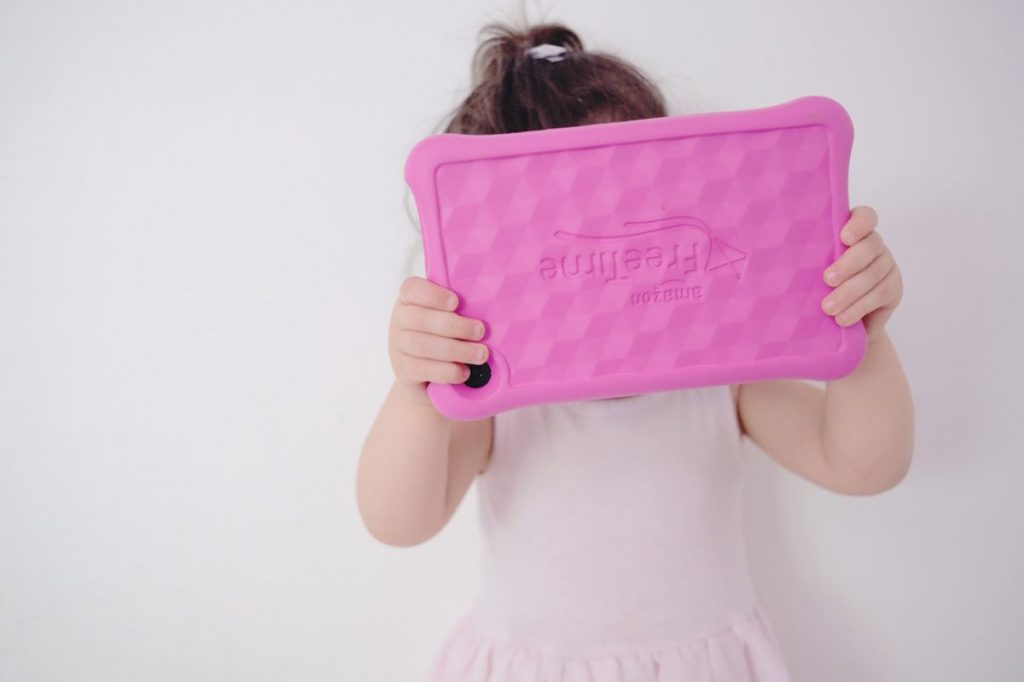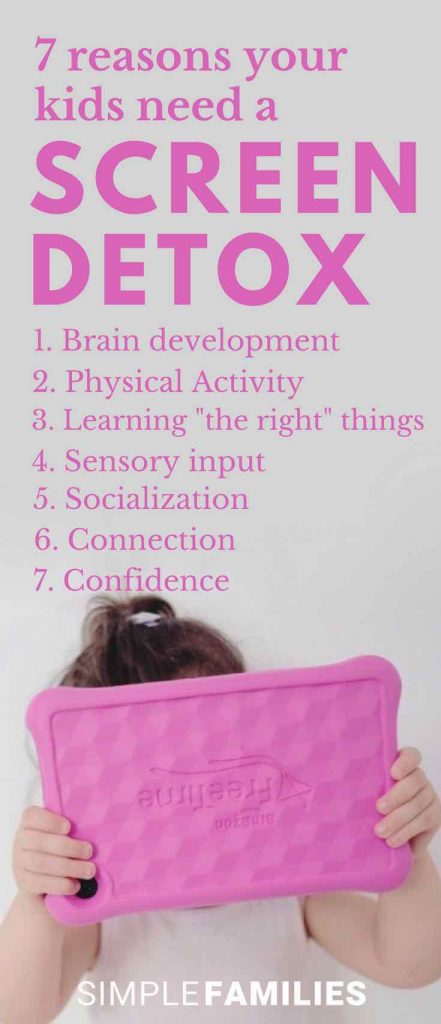 This year I flew solo with my kids from NYC to Norway. I wanted to be sure that we survived the voyage. So we invested in two Amazon Fire Tablets for my kids. My two-year old daughter received the coveted pink rubber device and my four-year-old son got the blue. They were pretty excited to say the least.
This year I flew solo with my kids from NYC to Norway. I wanted to be sure that we survived the voyage. So we invested in two Amazon Fire Tablets for my kids. My two-year old daughter received the coveted pink rubber device and my four-year-old son got the blue. They were pretty excited to say the least.
Warning: The following message contains sarcasm + tough love.
These tablets come with a lot of awesome perks. But here are two that stood out to me.
- You can’t break it. Even though you will want to because this thing is as slow as molasses in January. These devices are housed completely in rubber and will withstand any abuse. This is an important message for young children: it’s totally okay to chuck expensive electronics across the room without risking repercussions. And in the event that your child has a Major League throwing arm or decides it’s cool to use it like a trampoline–a broken device will be replaced free of charge. #norules
- It comes with a complimentary year of Amazon Freetime. Clearly I misunderstood what Freetime was before we bought these devices. I was under the guise that free time was an important part of childhood. A time that was meant to imagine, create, dance, and frolic freely. But alas, this is a different type of Freetime. This Amazon Freetime provides your child the opportunity to fill all his free time with infinite options for entertainment from the comfort of the sofa in the air-conditioned living room.
But you might argue, it’s educational–right?
Wrong. Young children are not meant to be educated by screens, they are meant to be educated by humans.
I don’t keep it a secret that I hold strong feelings about excessive screen use in early childhood. This information is not meant to shame–but instead to bring awareness that scaling back on the amount of time your children get each day is important.
Here’s the heart of the issue: Free time has become feared among parents. I am talking about the real free time, not the Amazon version. Over the past generation parents have developed the sense of responsibility that we are on the hook for entertaining our children all.the.time. We are now responsible for filling the free time.
And y’all…that’s a lot of pressure.
We are parents, not entertainers. When we try to be entertainers, we are robbing our children of valuable opportunities to learn, create, explore, plan, and problem solve. There is research that shows screen time is harmful for young children. But the screen itself is not the only issue. The issue is what these children are missing out on while watching screens.
Want to save this? PIN IT!
With this dramatic change in free time, our children aren’t playing. Childhood disorders are on a rise and childhood play is on the decline. Research has shown us that we are seeing more childhood obesity, attention-deficit hyperactivity disorder, anxiety, stress and sensory integration challenges. Play is decreasing and childhood disorders are increasing.
Without play, our children are suffering. Here are seven things your child is missing out on when they are watching screens:
- Brain Development. Sometimes we use screens because we just want our children to sit still. But the truth is, our kids need movement for brain development. The brains of our children will suffer without significant amounts of running, jumping, playing, and nature every.darn.day.
- Physical Activity. Our kids are becoming inactive. Rates of obesity in childhood are rising as our children are consuming more technology. When they are watching screens, they are still. Movement is a virtue of childhood, not stillness. The brains and bodies of the next generation depend on it.
- Learning the Right Things. Did you know that ABC Mouse can teach a 2-year-old all of her letters? That’s great, except the only value of this skill is bragging rights that your 2-year-old knows her ABCs. In the first years of life the right brain is under major construction. It rules our language, social skills, creativity, trust, and intuition. These first years provide an important window of time for developing these skills, which are best nurtured through human-to-human interaction and hands on, open play
- Sensory Input. When our children spend most of their days inside in temperature-controlled environments, they are losing vital sensory exposure. They miss the feeling of wind on the face. The sensation of sweat beading on the forehead. The surprise of a loud firetruck rumbling by. Humans have evolved to be outside and the implications of nature-deprivation that our children are facing are still yet to be understood fully.
- Socialization. Our children need to socialize with us and with other children. They rely on these interactions to build social skills for future relationships. The development of their language and future relationships relies on strong socialization that starts in childhood.
- Connection. It is difficult to be emotionally connected to a human when you are physically connected to a device. The emotional well-being of our children is dependent on the face-to-face human connection and presence that the parent-child relationship provides. Even though your child might look busy when they are on their device, they need you.
- Confidence. When children have ample time to play freely, they are able to practice independence and develop confidence. As adults, we know how easy it is to disappear behind a screen. Removing screens will give our children the practice they need to start “showing up” confidently in the real world.
Children need more free time to get back to the basics of play, but it doesn’t happen overnight. If your children are in need of a screen detox, be prepared they will likely pass through the Kübler-Ross Five Stages of Grief.
Denial. They may not believe you at first.
What? Is this a joke? You aren’t serious are you?
Anger. There will be volatility.
How could you do this to me? You are ruining my life!
Bargaining. They will try to negotiate and sweet talk.
If you just let have my tablet for 20 minutes, I will clean up my room.
Depression. There will be tears.
You are the worst mother ever. I miss my tablet. Do you want to see me sad?
Acceptance. They will move on, grow, flourish and play.
Hey Mom, look. I just built a teepee out of some sticks in the backyard and now we are using these cotton balls as marshmallows on our pretend campfire.
So there it is, the reasons your kids might night a screen-detox and how to get it started. I am here to say it’s possible. You can reduce screen time in your home, even if the task seems daunting.
But it’s not just at home. As I wrote this article my children were at story time in the public library. When they emerged I discovered the librarian had been showing them musical YouTube videos on her tablet during the 30 minutes session. We could absolutely just sing songs without video accompaniment. But it is becoming second nature to add this additional stimulation into our children’s lives.
But can we change that? Can we reduce screen time for the sake us our children’s health and well-being?
What are the challenges of setting boundaries around screen time for your children?

